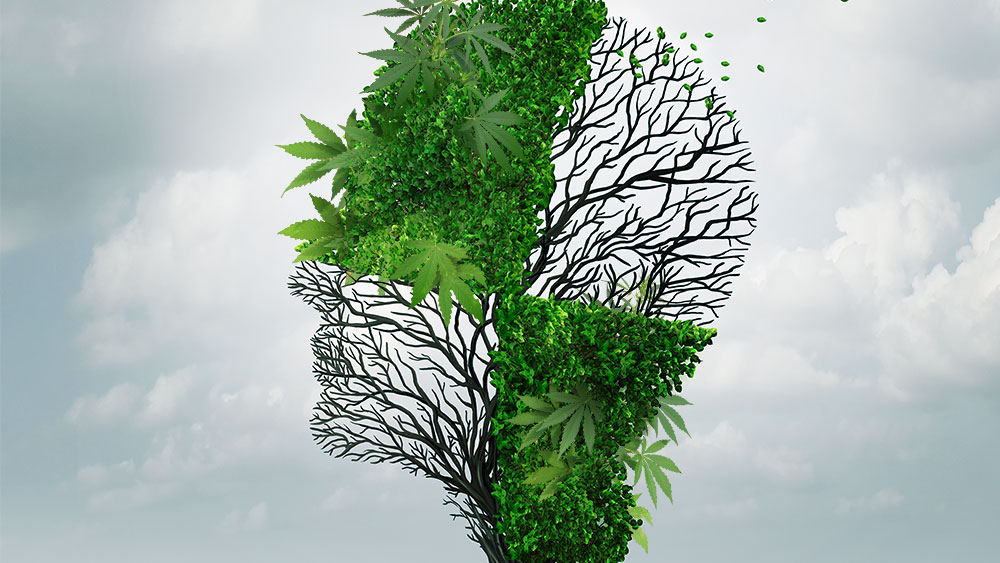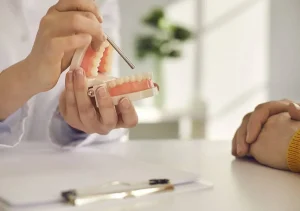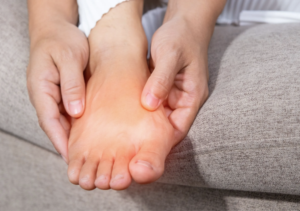Autism spectrum disorder (ASD) is a neurodevelopmental disorder that affects 1 in 68 Canadian children and youth.
Autism comes with social, communicative and behavioral difficulties which can be challenging for both the sufferers as well as their family members.
Recently, there has been an increased interest in using cannabis as a potential remedy for autism but in the absence of hefty medical research to back it up, doctors are still skeptical and not willing to prescribe cannabis to minors.
What is autism?
Autism is defined as having difficulties with communication, social interaction, and repetitive behavior.
Although some children reach certain developmental milestones “on time”, parents usually notice “unusual behavior” in early childhood (around 2 years of age).
The exact cause of autism is still unknown, but it is believed that both environmental and genetic factors may play a role.
- Delay in learning to speak, difficulties in language comprehension
- Intense focus on interests
- Difficulties with social interactions
- Repetitive movements such as flapping hands and rocking back and forth
- Sensory sensitivities
Autism is a spectrum disorder—not all children and adults have intellectual disabilities. While some have difficulties speaking and severe problems, other people on the spectrum do well in school and work. Interestingly enough, the unemployment rate among adults with autism is staggeringly high.
Unfortunately, anxiety, depression and sleep disorders are all frequently associated with autism.
How is autism treated?
Finding the right therapy for children is difficult, but it seems clear that early intervention can make a difference in later development. These therapies include applied behavior analysis (ABA), speech and language therapy, and social skills therapy.
When it comes to medical treatment, the most common options are SSRIs and antipsychotics.
These drugs may provide relief from some symptoms, but at the same time they can cause other health problems in the long-term (such as heart problems and diabetes, movement disorders and weight gain).
Research on using cannabis for autism
Due to the historic illegality of cannabis as a whole, there are only a handful of studies of marijuana and autism.
Fortunately, Israel has become one of the world leaders in cannabis research since they legalized medical cannabis back in 1992 and pioneered the cannabis research.
Israel is home to more than 100 studies exploring the many claimed medical properties of marijuana.
One Israeli study found that cannabis is very effective in reducing epileptic seizures and behavioral issues in children with autism. (1)
This is rather interesting, as 19 percent of children with autism also suffer from seizure disorders.
In a 2013 study, it was noted that the endocannabinoid system, and particularly its CB2 receptor, has potential therapeutic properties for managing autism. Tetrahydrocannabinol, one of the most researched active compounds from cannabis, can bind to that specific receptor. (2)
Several studies conducted on mice have found a link between changes in the endocannabinoid system and alterations on the X chromosome, which is associated with autism development. (3)
The most recent study from 2017 also suggests that the endocannabinoid system is responsible for managing neuroinflammation, which is associated with autism in children. (4)
Is it ethical to treat children with medical cannabis?
In a 2015 statement, the Canadian Pediatric Society said that “there is little data to support either the efficacy or safety of cannabis use for any indications in children.”
In Ontario, doctors have been advised not to prescribe marijuana to patients under 25, unless other options have failed.
But there are many parents and activists such as Mieko Hester-Perez, who claim to be effectively treating their children’s symptoms of autism with cannabis.
There are many stories from parents who give CBD oil to their children with autism and notice significant reductions in aggressive behavior, outbursts, as well as an improvement in socialization and communication.
CBD oil does not contain any THC and is non-intoxicating. The oil is usually made from industrial hemp and has below 0.3% THC.
Best ways to consume cannabis without smoking it
Using medical marijuana for symptoms associated with autism doesn’t necessarily mean that one needs to light up a joint. Smoking is not the only option to get cannabinoids into the system. Here are some alternatives:
- CBD oils can be used in the form of sprays and drops.
- Edibles are one of the healthiest ways to use weed. Have in mind that when consuming cannabis-infused food, it takes much longer to feel the effects compared to smoking (where you can feel the high almost instantly), especially if you chose a high-THC strain. The effect of edibles lasts longer, too. There are tons of recipes for homemade cannabis edibles: you can make cupcakes, brownies, smoothies.
- Vaping is also one of the less harmful ways to get high, and there are even vaporizers which are approved by Health Canada.
Finding the best way to consume cannabis requires doing some research on your own. So, patience and a weed-friendly doctor are your two new best friends.
Best strains for autism (you can use these to make edibles)
Choosing the right strain for any type of medical condition is never an easy task.
Since we are all different, with individual needs, some strains might not work for you. So, take time and patience, and stay persistent in finding the best strain for your needs.
Alternatively, you can use Strainblazer to easily browse through more than 400 strains produced by Canada’s licensed producers.
Best high CBD strain for autism
Exclusive bonus: Download a free dosage guide that will show you the exact step-by-step process Dr. Dustin Sulak used to successfully treat more than 18,000 patients with cannabis.
Cannabis experts recommend sticking to high CBD strains for managing behavioral issues of autism, as well as seizures.
CBD seems to be particularly helpful in improving communication difficulties and reducing self-harm behavior, hyperactivity and hypersensitivity.
Charlotte’s Web
The ultimate medical strain with high CBD levels and almost no psychoactive THC (less than 0.3%). Cannabis breeders The Stanley Brothers developed this strain to help a girl called Charlotte Figi who was suffering from severe epileptic seizures. This strain will not cause psychoactive effects and parents who use it (usually as edibles) for treating their children’s autism symptoms report seeing improvement in appetite and calmness.
Best high THC strains for autism
In some people, the psychoactive effects of high THC strains can increase anxiety. Start slowly until you figure out what works for you.
Blue Dream
Very effective for any type of pain, as well as suppressing discomfort. A high THC strain, Blue Dream is great for daytime use when things need to get done.
Black Bubba
A perfect strain for people with autism who also suffer from a sleep disorder. Black Bubba calms the body, providing relaxation and mild sedation. That’s why it’s recommended to use it at night when you are at home in your comfy bed.
Green Crack
So many health benefits from this one…it boosts your energy and relaxes the body. When it starts to wear off, it’s gentle on the brain. It provides focus while making social interactions as smooth as possible.
Sour Diesel
Also a great strain for making socialization an easy process, which can be very tough for people with autism. This is a popular strain for many different conditions since it crushes stress, anxiety, and depression.
Hindu Kush
This strain calms the body and mind which can make it a great choice to calm racing thoughts. Hindu Kush has many more therapeutic properties, such as reducing pain, depression, and anxiety. People living with autism often tend to have problems with sleep, but this strain can help with that, too.
Northern Lights
A very popular medical strain for managing stress, depression, and pain. You can expect a couch lock effect kicking in once you take Northern Lights, while it slowly induces sleep. Great strain for chilling at home after you have finished your day.
To conclude…
If you or your loved one are living with autism, and you are interested in using cannabis for managing symptoms, find a doctor with expertise in medical cannabis who can help you decide how to proceed.
References:
- Aran A, Cassuto H, Lubotzky A; Cannabidiol Based Medical Cannabis in Children With Autism- a Retrospective Feasibility Study (P3.318); Neurology; April 2018; 90 (15 Supplement) P3.318
- Siniscalco D, Sapone A, Giordano C, Cirillo a, De Magistris L, Rossi F, Fasano a, Bradstreet Jj, Maione S, Antonucci N; Cannabinoid Receptor Type 2, but Not Type 1, Is Up-regulated in Peripheral Blood Mononuclear Cells of Children Affected by Autistic Disorders; Journal of Autism and Developmental Disorders; November 2013; 43(11):2686-95
- Földy C, Malenka RC, Südhof TC; Autism-associated neuroligin-3 mutations commonly disrupt tonic endocannabinoid signaling; Neuron; May 2013; 78(3):498-509
- Habib SS, Al-Regaiey K, Bashir S, Iqbal M; Role of Endocannabinoids on Neuroinflammation in Autism Spectrum Disorder Prevention; Journal of Clinical and Diagnostic Research; June 2017; 11(6):CE01-CE03








kevin Joseph November 8, 2018 at 9:59 am
Hi, I'm Really Impressed With Your Article, Such Great and Useful Knowledge You Mentioned Here about Marijuana and Autism. It is extremely educational and supportive for me. The most important thing to know about autism is that it is a spectrum disorder, meaning its effects vary from person to person. No two people with autism have the same symptoms. Marijuana, or cannabis, is the most commonly used illicit drug in the world and finally, now it is legal.
Seeds Online November 25, 2018 at 12:20 pm
Cannabis is proven to cure a lot of illness especially autism. Autism may not have a cure for now, but cannabis is there to lessen the pains and seizures it brings.
Amber January 9, 2019 at 7:40 pm
My daughter is 4 years old and they are wanting to put her on meds and have not yet came up with diagnosis. I want to do marijuana so bad! It's legal here in Arizona but only if you have your card and you are over 18. I need advice please help. She is so smart and kind just hyper no fear and social awkwardness. They are saying a sensory thing because she rocks sometimes and drags her left foot when asked to stand still and focus. I personally am always shaking my leg or foot but I just don't know I'm about to make butter with my saved Kief and only cook her breakfast with that particular butter. But I don't want to somehow get in trouble......ugh I just hate pumping our kids with chemicals that are going go harm other things....anyways I'm rambling. Any good doctors that are willing to talk or great advice I can't afford the good CBD right now..Thank u for reading,.
Madelyn May 13, 2020 at 2:55 am
Hiii. How is she now ?
Jeff Parker March 1, 2019 at 11:09 am
I read your article. I am really impressed .You Mentioned Here about Marijuana and Autism. It is extremely educational and supportive for me.
Kira March 7, 2019 at 5:03 am
I would love more info on the Charlotte's Web strain and how/where to purchase it. I am a struggling autism mom who's trying desperately to avoid having my son put on adderall or ritalin. I do NOT want him on some synthetic crap made by pharmaceutical companies. I want natural, please help!
john February 7, 2021 at 8:55 am
I'm a father of a son who was diagnosed with autism and the greatest thing that has helped my son and others that I've shared with is that taking my son off of dairy products was like day and night. Went from inability to concentrate and focus and trouble with comprehension and no eye contact to me crying because when I called his name he would look me in eye and would focus on task given.
Jack Richard November 14, 2019 at 8:17 am
The most important thing to know about autism is that it is a spectrum disorder, meaning its effects vary from person to person. No two people with autism have the same symptoms.